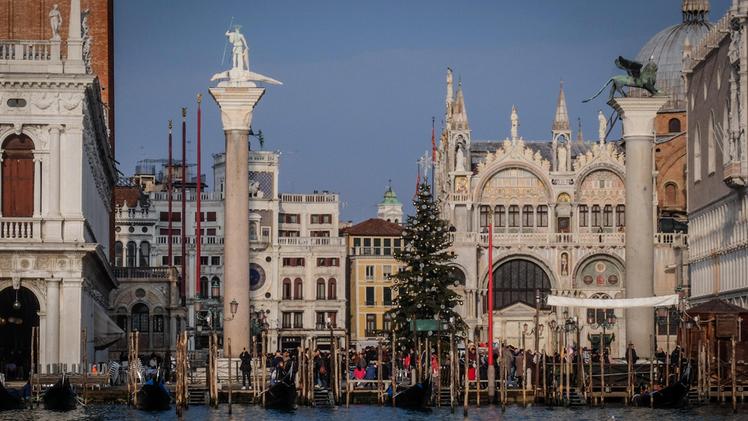Since January 16, there have been 51,157 exempted individuals who have booked their entry to Venice for the 29 days requiring an access fee. On the other hand, nearly 15,000 paying visitors have been accounted for. These statistics were presented to journalists at the foreign press room in Palazzo Grazioli, Rome, during the unveiling of the communication campaign dedicated to the entrance fee for accessing the Serenissima. This experimental measure aims to deter overtourism and won't "close the city," as emphasized by the Mayor of Venice, Luigi Brugnaro. Instead, it will make the city "bookable," without setting a maximum limit on the number of visitors. Brugnaro highlighted that this initiative, with the right approach, could serve as a model for other destinations worldwide, as there is a duty to preserve significant historic centers.
The dates
The experiment in the ancient city of Venice will commence on April 25, from 8:30 a.m. to 4:00 p.m., for 29 days. The access fee - a QR code - will be required until May 5, then again on Saturdays and Sundays until July 14, excluding June 1 and 2. The ticket will cost €5 and must be paid by day-trippers to Venice, while those staying overnight in the city are exempt, including residents, students, and workers. Concerns were raised by international journalists regarding potential queues during checks. Brugnaro explained that there would be multiple checkpoints - not turnstiles - to intercept the majority of tourists, along with priority entrances. The campaign's slogan, "But is it true?" is reflected across various channels, from television to social media to print media. Videos already online, generated in different languages with artificial intelligence, feature residents and municipal officials responding to questions posed by the public. One of the tools utilized is a QR code, which, in addition to the website, directs to a video of the mayor explaining the initiative.
"Saving the City"
Brugnaro emphasized that the objective of this initiative is not revenue generation but rather the defense of the city. He underscored that this is the world's first experiment of its kind, undertaken with some risk. Speaking about Venice's preservation, he also addressed the issue of funding for the special law, which has run out. The city, without this support, cannot sustain itself because continuous maintenance work is necessary. Brugnaro stressed the need to lobby for renewed government funding, stating that he has two more years as mayor, and this is not just his problem but everyone's. Despite being part of the ruling majority, he criticized the government for not allocating funds to the special law. Venice requires €150 million annually for the next ten years. Additionally, Brugnaro highlighted the city's demographic imbalance and depopulation as further challenges. (GdV, venerdì 5 aprile)


